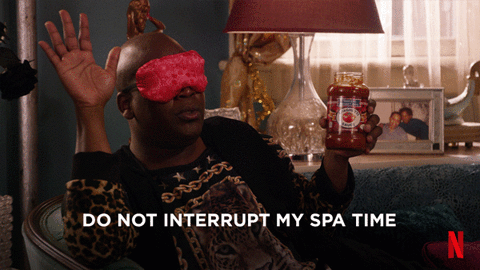12 Truths About The INFJ Personality Types, That Most INFJs Keep To Themselves
Details the INFJ may not have wanted to let you know about.
Myers/Briggs personalty types are a common psychological assessment that has gone mainstream in recent years and most people know theirs.
If you don’t, check it out
Most people have heard of the INFJ stereotypes, and how they’re so “rare“ and “misunderstood”. Well I’m here to tell you 12 truths about the INFJ That they might not be too keen to share with you. Are INFJ’s really the rare bird they’re cracked up to be? Take a look at these 12 truths and see how many you identify with.
1. Their moral compass is the strongest bone in their bodies
INFJ's do not change their mind often. Call it thick headed, they call it calculated. They spend countless debates and years of tiring research developing these morals. Furthermore, they aren't willing to commit to a moral until they know when it was first created and every human who has ever taken this view and what it was applied to. (I exaggerate, but hardly). They are open to learning new things but just expect that change in an INFJ could take years.
2. They like getting a mild cold
Okay, I said it. They like experiencing what it means to be a good 'ol normal human with the occasional issue. They like waking up on a winter morning and having a sniffle and putting on three layers of clothes and eating nothing but soup all day. If it doesn't last twenty-four hours its disappointing, but if it lasts up to forty-eight it's now ruining their lives and they vow to themselves to never forget how awful being sick is.
3. They can only make one new friend at a time
Making friends as an INFJ is an exhausting process. First, they must sort through every person in the room and absorb as much information about them as possible. Being an INFJ in a new group of people is like one sided speed dating. Okay, so in this room say they meet one potential friend. The conversation is going well, they can imagine hanging out. But, then there's the fear of if they could be an INFJ approved, "Real Friend". This will take approximately six months of daily interactions where they give this person all their extra emotional energy so they can deeply process and categorize each word that is said. If the person has kept their attention and you have kept theirs in this time, it's a match made in heaven! As you can imagine, there's no time to get to know anyone else in this period.
4. They can only be leaders if they're experts on the topic
No, they're not always the fierce out-spoken leaders. Actually, 9/10 times they won't say a peep. They live life on the rule of, "please don't embarrass yourself more than you already do on accident". This means that if there is any change that someone in the room knows more on the topic than them, leadership is a no-no. Watch them turn into a meek little lamb in seconds. On the other-hand, let one person utter a phrase out of ignorance and watch the infamous side of the INFJ sprout its wings. Misinformation will not happen on their watch, no Sir. They will take lead and sail this ship to safety with their well researched knowledge!
5. You know what too nice means: Fake
We know! They're a little too interested in your life. A little too quick to complement your shirt. They've told you they hope you have a wonderful day, every day since you met. Let's just clear things up once and for all- it's not fake. They're people lovers. It's actually embarassing, but they can admit, they’ve tried to force themselves not to like certain people, and it doesn’t work. They’re a classic example of seeing the best in everyone. The more time you spend with someone, the more they just grow on ‘em.
6. Their creativity comes out in strange bouts
I know, this one is weird to all of you permanently creative types. But, they can go months or even years with no creative content flowing. Sometimes they get the idea for an art piece and it comes out looking like it came straight off Pinterest! Well other times it’s not quite clear what their stick figure was supposed to be of. This applies to writing, debate, problem-solving, games, and pretty much anything that requires a little bit of that imagination sparkle. Sometimes it’s just gone.
7. They like heavily emotional stories
No one can get down for a movie about the tragic story of a teenager fighting depression and dealing with a broken family like an INFJ. They live for it. Oh, those make you feel sick? Them too. However, it’s like the unspoken duty of the INFJ to seek out this painful content to further their understanding of people and what makes them tick. How will they remembered to help if it didn’t make them cry or have nightmares? -The INFJ motto my friend.
8. They experience a different kind of tired
Yeah, yeah. We know what you mean by you worked hard and have been up since 5 AM, but trust me it’s different. When an INFJ openly admits that they’re tired, they don’t mean sleepy. They mean drained. They mean whatever they did today burned up all of their social skills as an introvert, all of their emotional energy, and they just can’t do it any longer. It’s best to let an INFJ sleep at this point. If you push them one minute past this they might have a meltdown about their deep-seated efforts to save the world and how they haven’t come to fruition yet. And trust us, you don’t want that.
9. Structure and routine is the name of the game
They hate change. I know, funny joke because their “the advocate“ personality type. Maybe this does make them hypocrites, who knows. They need to prepare. You can’t last minute change their plans. They already researched it and mentally rehearsed it 10 times. There is no change! They don’t like last-minute plans. They don’t like moving. They don’t like unexpected people over. They don’t like being woken up at the wrong time. They don’t like the unexpected, okah? Yes, they will be the parent to require at least a two day heads up for a play date or they’ll have a panic attack.
10. They are sensitive little creatures
They cry, a lot. But, fear not, they aren’t public cryers. They cry in the comfort of their room, or in extreme situations they’ll cry in front of a family member or INFJ approved “Real Friend“. They cry when they’re misunderstood because honestly that’s they’re biggest fear. They cry when they hurt someone’s feelings because that so goes against everything that an INFJ stands for. Yes, they want change but never through being hurtful. They cry when people hurt their feelings, because they want the respect they give others. And sometimes they cry because their brain won’t turn off and they can’t stop thinking about everything awful they’ve ever been exposed to. That one hurts.
11. They love to love
I don’t know if you’ve ever experienced being loved by and I NFJ, but it’s intense. And it’s definitely not for everyone. INFJ’s obsess over everything you do. You have a passion? Don’t worry, they will research the history of it and watch documentaries on it every night for a week. You had a bad day? They’ll use talk therapy and try to convince you to stay up late talking about your childhood and how that affected your day at work today. If an INFJ loves you, you’ve been admitted for a lifetime pass to their inner circle. Don’t worry, they never let anyone leave! INFJ’s don’t let go of those they love easily, actually, I suppose that’s a downside of the personality type because sometimes it’s hard to let go of toxic relationships with the constant INFJ need to “fix“ things.
12. Yup, they’re the mom of the friend group
“Safety first! Did you eat lunch yet? Don’t talk about yourself like that. I’m so proud of you! That was out of line. Go change your clothes. Reword that, please.” These are all words you will hear come out of your INFJ friend’s mouth. They can’t help it! They’re impulsively nurturing. If they don’t nurture you they’ll have to spend their day at the animal shelter or in a children’s hospital. Although it might be annoying, and your INFJ friend rarely cuts loose and stops worrying, just take it as a complement. The fact that they are spending their time thinking about ways to keep you safe and healthy amid trying to save the world must mean you’re worth it!
Hopefully these cleared some of these stereotypes up and made the INFJ personality type out for what it actually is: just another person. Do you know someone who sounds like this? Share with them! You might have an odd duck in your pond.
























































